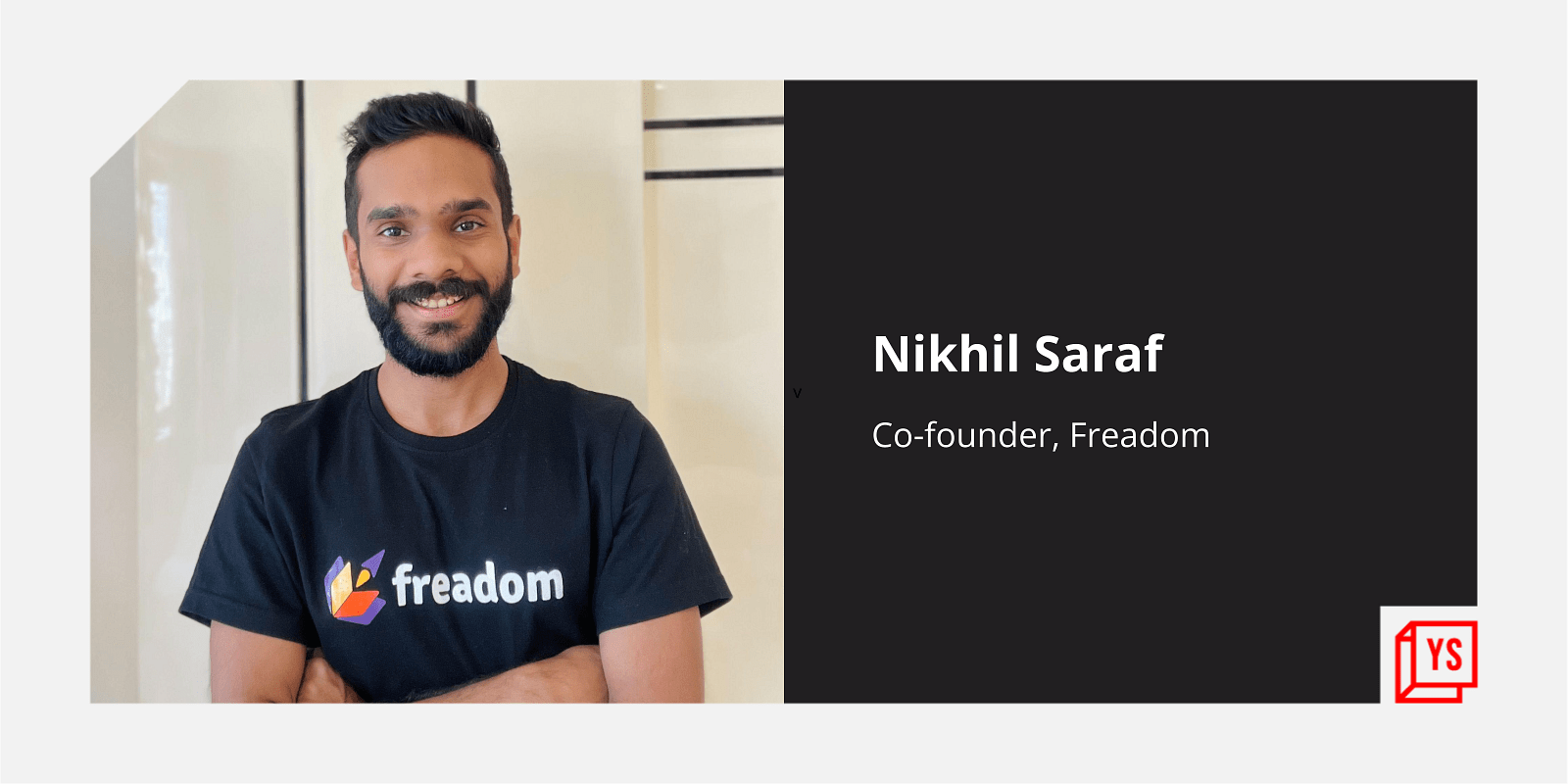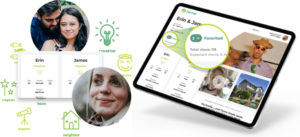In a country like India, learning to speak in English is still aspirational for many. Although, compared to other non-English speaking countries, India is still way ahead, with English being the second most spoken language in the country. However, the fact of the matter remains that beyond its metros and Tier II towns, the language is still not widely understood.
Gurugram-based aims to change that.
“Freadom equips children to learn to read in English in any country where English is an aspirational second language, via its state of the art recommendation engine; built in collaboration with Stanford University to drive English language learning,” says Nikhil Saraf, Co-founder of Freadom.
Launched in 2016 after eight years of intensive grassroots level research in learning and reading science, the app is available on both Android and iOS for people to start their learning journey, which is personalised from the very first interaction.
It caters to children in the age group of three to 12 years and has content including stories, quizzes, live classes, storytelling sessions, news, activities, and speech games. The app keeps assessing the level of the child as they use the app, and guides them towards improvement, all of which can be tracked.
“The app has spent years innovating on speech AI, and can now help children track their oral fluency using their inbuilt advanced speech assessment in association with Carnegie Mellon Speech,” Nikhil says.
Children who require a more involved engagement and specific guidance can sign up for paid live virtual classes by teachers trained on the Freadom pedagogy.
The USP
According to Nikhil, Freadom is a data science first edtech organisation with a proprietary state of the art recommendation engine built in collaboration with Stanford University, which helps extreme personalisation at the app level. It is the first app to assess oral fluency using speech AI – “like Microsoft OS to computers, we are the Operating System for the world learning English as a second language,” he claims.
“The organisation spent over a decade to marry the above with its own pedagogy based on both primary and secondary research,” says Nikhil.
In terms of English content, Freadom believes it competes with YouTube and in the reading space, Freadom counts digital library EPIC! as competition.
The team
Founders Kavish Gadia and Nikhil met each other through a common connection in Kavish’s previous venture, Resurgent India, and spent a year understanding the space.
Both were avid readers and wanted to build something that had a lasting impact at scale. After going through many problem statements in the education space, they realised the need for a bottoms-up approach to changing the landscape by fixing something fundamental in the early years – early literacy and more specifically reading in English.
Freadom is an expression of their passion and love for reading and stories and its launch was backed by years of research-based pedagogy, world-class content and an adaptive learning journey for a child with careful consideration to AI-empowered learning outcomes.
While Kavish is an alumnus of IIM-Lucknow, Nikhil is an alumnus of VIT, MICA and Stanford.
Freadom is an initiative of Stones2milestones Edu Services Pvt Ltd which was founded in the year 2008. It has an employee base of 150 members including full-time equivalents — FTEs (including Payroll + Contractual + Intern). Outside of this, the firm has 275 facilitators on retainer contracts.
Funding and monetisation
Since its inception, Freadom has raised a total of $6 million, of which $5 million has come in post-pandemic. Its leading investors are Unreasonable Capital and Capital A, over various rounds and stages. Some of its other marquee investors include co-founders of BharatPe, InMobi, Quantiphi, Fisdom, Near, VMart; professional leaders like Aakash Moondhra (Global CFO, PayU) and Bollywood star Tiger Shroff.
“We also have institutional debt lines from Northern Arc and Caspian. Our co-founders and KMPs have chipped in $1 million over the years,” Nikhil says.
Freadom is focused on India first. “We only launched a pilot operation in Korea to establish PMF (product-market fit) and growth levers for international expansion – this pilot has been successful and generates organic revenue,” says Nikhil.
“With the current raise, we would hit our immediate milestones with cash break-even operations — 10 million app users and $7.5 million revenue in FY-2023 and by end of 2023 targeting a total user base of 50 million users,” he adds.
Freedom app has a total of 465,000 registered users. Of these, 12,000 users have already moved towards a paid subscription generating a total Rs 9.50 crore revenue in the first nine months of the year.
The company’s current business model has three segments from a customer journey standpoint:
- A reading community for schools – “Club 1 Billion Readers” with over 3,000 registered schools. Through this community, schools are able to offer the Freadom app free of cost for children for six months.
- Through the above first step and some digital marketing spends in a few quarters in the past, the company has got to 465,000 registered users on the App. In the current month, the company is attracting 2,500 plus daily new users without any marketing spends through this channel.
- During the pandemic, the company has kept all premium features of the app free (expecting to push some of these behind paywall in the near future). Currently, all the revenue comes from app users who wish to come for group live classes ~ these classes are targeted towards providing experiential learning and practice communication skills in a group AOV (average order value) is around Rs 15,000 with 8-10 percent trial conversion rates). The programme is running on 60+ NPS, with 95 percent attendance and less than 2 percent refund rate.
“We had clocked B2C revenue of $4,000 and $675,000 in FY20 and FY21 respectively. We do get Rs 1-2 crore annual revenue from schools who choose to integrate our programme in-school curriculum (we don’t have any sales or support team for this),” Nikhil says.
The way ahead
Venture capital investments for early childhood edtech startups have been steadily increasing over the past decade. Over the past four years, US-based early childhood edtech startups have raised about $372 million in venture capital and the trend is rapidly picking up in India as well. One report even suggests that we could see up to $150 billion of investments in edtech deployed this decade given the current migration to online platforms for learning.
“In India, we are category creators and leaders in the reading space. However, post-pandemic, there is a literal red ocean for live class revenue where our largest competitor is Vedantu,” says Nikhil.
“We do have real competitors in the international market on both self-learning app and live class learning. However, at the moment, we wouldn’t be looking at international growth. We will continue to grow organically in Korea,” he adds.
One of the core moats for the company is its flywheel around reading and the ability to serve all its stakeholders from dedicated teachers, engaged parents, schools, publishers, content creators to children.
“We are on the path to become two large outcomes. The first is the setting up of a global gold standard for learning English as a second language. Second, mapping the reading genome (our partnership with Stanford University’s human-centered AI division is a significant contributor in this direction),” says Nikhil.







![Read more about the article [Investor Summit 2021] Experts discuss how startup founders can engage with corporate venture capital firms](https://blog.digitalsevaa.com/wp-content/uploads/2021/04/investor-1617451030547-300x170.png)

